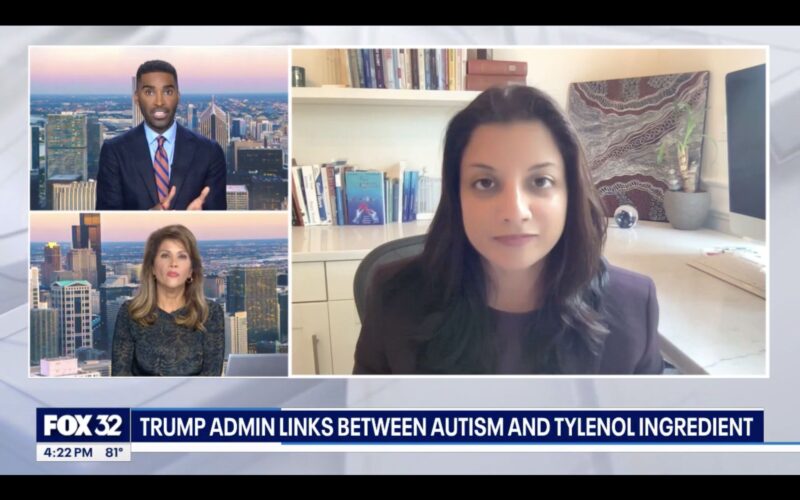Shikha Jain, Founder, Chair of the Board (Former CEO)at Women in Medicine, shared a post on LinkedIn:
“After today’s press conference, I joined the team at Fox32 Chicago again to address ongoing misinformation about Tylenol, autism, and leucovorin.
Here’s what’s important to understand:
Association not equal causation. While some studies explore possible associations between prenatal exposures and developmental outcomes, no reproducible, causal evidence links Tylenol use in pregnancy to autism.
Tylenol may be necessary to take during pregnancy as a safe over the counter medication to treat fevers and/or pain. Fevers in pregnancy HAVE been shown to have the possibility of causing birth defects and other complications with pregnancy. And other common over the counter medications are NOT recommended in pregnancy like advil because they can increase risk of miscarriage or kidney damage in the fetus.
Leucovorin (folinic acid) is a safe, well-studied medication with specific uses in oncology and chemotherapy. It is also prescribed in some rare metabolic and neurologic conditions. Claims that it ’causes’ or ‘cures’ autism are not supported by science. Folate is recommended for women to take while pregnant to prevent neural tube defects. That is a science based recommendation, which is very different from this claim being made that leucovorin can treat all patients with autism.
Autism is likely due to multifactorial underlying causes. We are learning more every day about how genetics, environment, early development, and other complex factors intersect. Rising diagnoses are due in part to better awareness and improved diagnostic tools, but there are likely other contributors we still need to understand.
It is absolutely important to do more research – because identifying potential causes, preventive strategies, and better treatments is a shared goal. But that research must be driven by rigorous data and reproducible evidence. What cannot guide us are opinions, speculation, or hopeful but unproven theories.
Misinformation – especially from prominent figures – can sow confusion and fear, leading people to avoid safe, effective treatments or chase false promises.
As physicians and scientists, we need to keep redirecting the conversation back to evidence, data, and the ongoing research that truly moves the field forward.”

More posts featuring Shikha Jain on OncoDaily.


